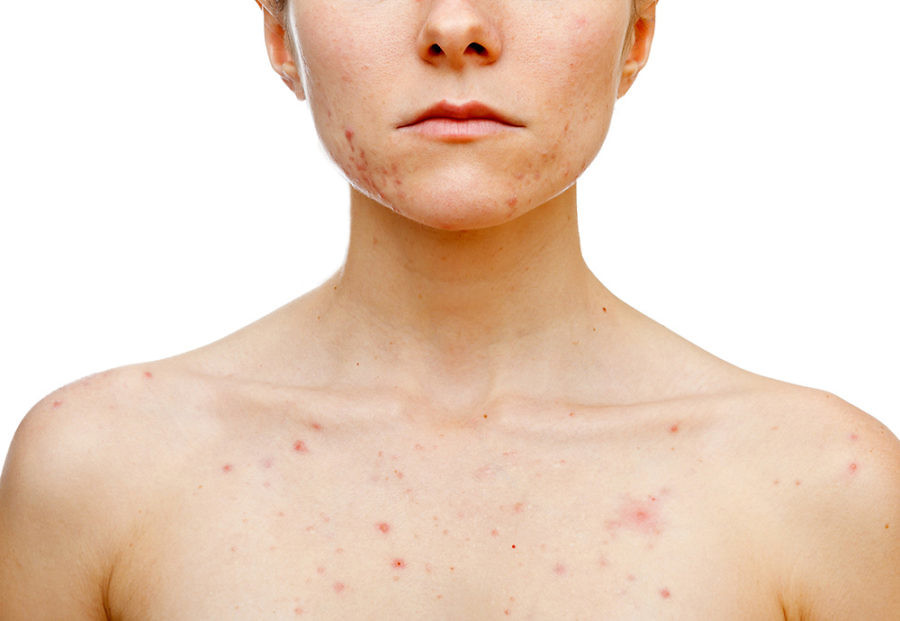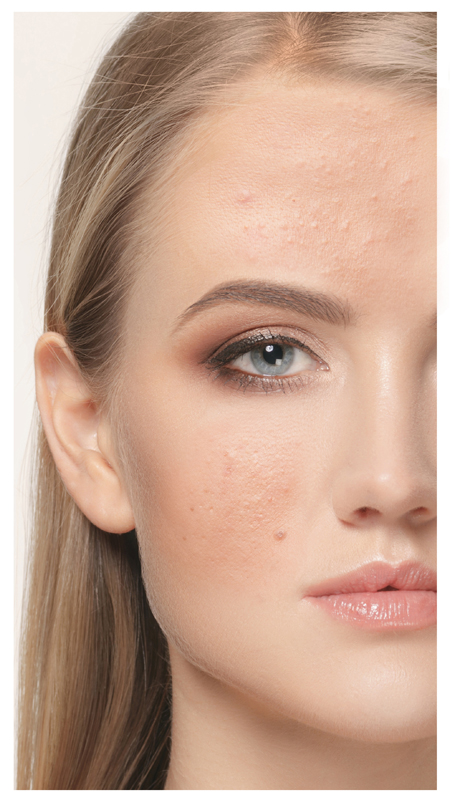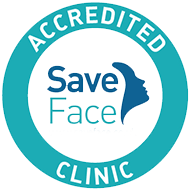
Acne is in fact the most common skin condition in the UK, affecting an estimated 80% of the population at some point.
Although it is commonly associated with puberty and the teenage years, it can continue into adulthood with some people suffering into their 30’s and beyond. Acne is most commonly seen on the face, chest or back and its very visibility is part of the problem for the sufferer, as it is a very public condition. Treating acne can sometimes be difficult, at Symétrie Aesthetic Clinic we understand how to address the correlating factors associated with acne formation. Depending on the severity of acne it can be treated together with a variety of peels, products and in some cases antibiotics are prescribed.
There are six main types of spot caused by acne:
- blackheads – small black bumps that develop on the skin, caused by overactive sebaceous glands which have produced too much oil which cause the pores to clog up , exposed to air this causes oxidisation and then blackheads to form
- whiteheads – have a similar appearance to blackheads, but may be firmer and won’t empty when squeezed
- papules – small red bumps that may feel tender or sore
- pustules – similar to papules, but have a white tip in the centre, caused by a build-up of pus
- nodules – large hard lumps that build up beneath the surface of the skin and can be painful
- cysts – the most severe type of spot caused by acne; they’re large pus-filled lumps that look similar to boils and carry the greatest risk of causing permanent scarring.
These self-help techniques may be useful:
- Don’t wash affected areas of skin more than twice a day. Frequent washing can irritate the skin and make symptoms worse.
- Wash the affected area with a mild soap or cleanser and lukewarm water. Very hot or cold water can make acne worse.
- Don’t try to ‘clean out’ blackheads or squeeze spots. This can make them worse and cause permanent scarring.
- Avoid using too much make-up and cosmetics.
- Completely remove make-up before going to bed.
- Wash your hair regularly and try to avoid letting your hair fall across your face.
The treatment we recommend will depend on the severity of your acne, so an initial assessment is advised so that we can recommend what treatment and products will benefit you the most.
We would normally recommend:

